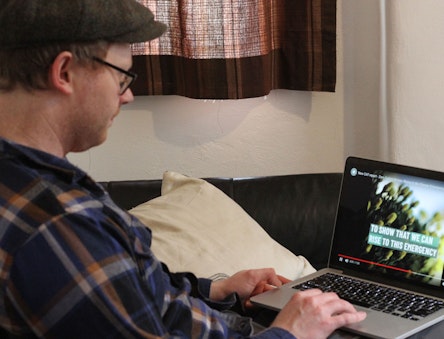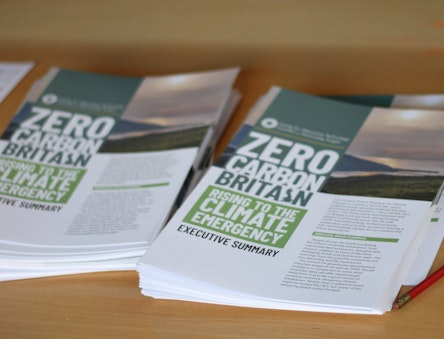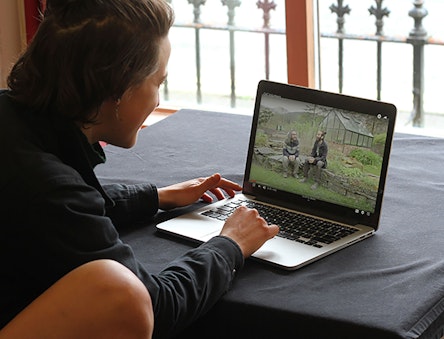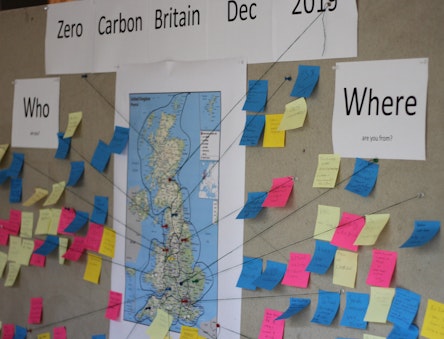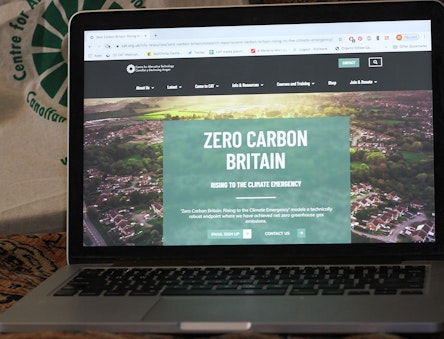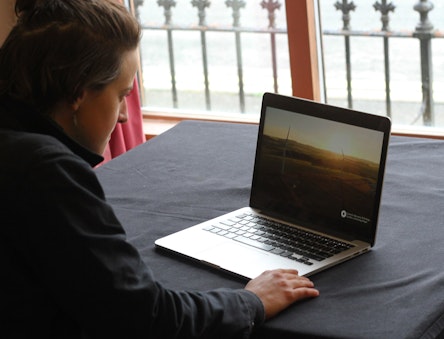
Zero Carbon Britain: Live Online – Scaling-up Community Action
June 19, 2024Home » Zero Carbon Britain: Live Online – Scaling-up Community Action
How can communities take the next steps on their road to a just transition and how do we kick-start the implementation of local Zero Carbon Britain plans?
CAT’s new Zero Carbon Britain course will explore how communities can best meet the challenge of the climate change and biodiversity crises in a time of political uncertainty – the science says we must, the technology says we can, time to say we will!
Drawing on our extensive experience working with communities, local authorities, and on our flagship in-house Zero Carbon Britain research and the expertise from our Graduate School of the Environment, the Zero Carbon Britain team invite you to join us for a day of interactive learning and discussions focusing on the key question: what next for your community?
Key Information
- Duration: Wed 19 June 2024
- Location: online
- Start and finish times: 9:30am to 5pm (with timetabled break)
- Fees: £95 per person
- Includes: tuition, question and answer sessions, online course material
- Terms and conditions
- You must be 16 years or over to attend this course
- For a full list of terms and conditions click here
Please buy a full-price ticket if you are able to. Every penny helps create a safer, healthier and fairer future. However we don’t want anyone to miss out, so concessionary tickets are available if you cannot otherwise afford to join us.
What you will learn
During this one day online course, participants will explore important topics related to the question of how communities can take the next-step on the road to a just transition using CAT’s own Zero Carbon Britain research, and hard-won experience of communities around the country to inform the creation and development of community action plans.
Topics and speakers have been chosen carefully to assist communities progress their activity and to optimise their collaboration with their Local Authorities, and is designed for community organisation members, Local Authority staff and interested citizens. Topics include:
- The Big Picture: where are we now, and where might we be in 5-10 years’ time? This session is designed to bring participants up to speed on the latest ever-evolving climate & biodiversity science, and related efforts to respond at the international, national and local levels, including an assessment of the COP process and COP 28 in particular.
- Creating, implementing and developing a local vision or ‘local Zero Carbon Britain plan’ – does your community have a comprehensive plan to support a transition to a zero carbon Britain, involving renewables, energy demand reduction, land use change and wider behaviour change? In these sessions, participants will hear from community groups who have taken the national Zero Carbon Britain research as a model and applied it to their location, incorporating land and food, energy and retrofit solutions while maximising wider behaviour change.
- Forming or developing new, citizen-led groups that are able to manage infrastructure projects, services and land management is very hard, and the road to success is littered with abandoned projects, disbanded groups, and burnt-out community members. What have we to learn from the successes and failures, and how might communities best collaborate with Local Authorities? These sessions will share the recipe for success and introduce key concepts necessary to scale-up community empowerment in the transition to zero carbon communities.
- Next-steps – This session will draw together all the strands of the day’s training, allowing participants to formulate tangible next steps in their community’s journey to a just, regenerative, zero carbon society.
The live, interactive nature of this course will offer a rich online learning experience. To get the most out of the course, we suggest you:
- Download the Zero Carbon Britain; Rising to the climate emergency, and read (at least) the 8-page executive summary and explore chapters relevant to your areas of work / expertise.
- Make a note of key questions, reflections and ideas for going forwards.
Meet your tutors
Paul Allen
Paul is Knowledge and Outreach Coordinator for Zero Carbon Britain. He has been a member of the Wales Science Advisory Council (2010), board member of the International Forum for Sustainable Energy (2008) and a Climate Change Commissioner for Wales (2007). He holds an Honours degree in Electronic and Electrical Engineering and has been at CAT since 1988.
Sonya Bedford
Sonya graduated from CAT’s renewable energy MSc in 2018 and is currently Head of Energy at Stephens Scown LLP. Sonya leads a team of solicitors specialising in energy policy and law. She advises industry on legal requirements for large scale renewable energy developments, including grid, infrastructure, policy, licensing and supply issues. She was awarded an MBE for services to community energy, along with a number of other environmental awards.
In 2020 Sonya was appointed to the CAT Board of trustees. She also sits on the board of five community energy groups and is one of the founders of the innovative and ambitious Zero Carbon Wedmore group.
Magda Petford
Magda Petford is a Neighbourhood Transitions Co-Lead at CIVIC SQUARE, working to build resilient neighbourhoods in Birmingham and beyond through creative convening and learning infrastructure that supports communities in moving towards a future where people + the planet can thrive together. Magda is a designer/illustrator, passionate about creating visual artefacts that bring a sense of joy and hope to complex concepts. She also loves exploring the outdoors and finds solace in the green spaces we have access to here in the UK.
Amanda Smith
Amanda is the Head of Learning and Education at CAT. She has over 20 years experience in teaching, school leadership, adult training and organisational improvement. Amanda is a highly qualified, competent and experienced educator, with Qualified Teacher status, National Professional Qualification for Head Teachers and a Specialist Leader of Education.
Prior to joining the Centre for Alternative Technology Amanda was a Head Teacher, she also worked in an advisory capacity for the Local Education Authority from 2003, working with schools and other organisations in challenging circumstances to enable them to develop effective action plans and bring organisational change and improvement as a result.
John Anderson
John holds degrees in international relations, law and international security. He has a background in decision support consultancy, training, research, facilitation and project management in the private sector. He has been leading the development and delivery of ZCB’s online training sessions for local authorities and community groups over the last two years, and is currently researching climate change adaptation with CAT.
Related events


Virtual Open Day: MArch Sustainable Architecture Part 2
22nd April 2024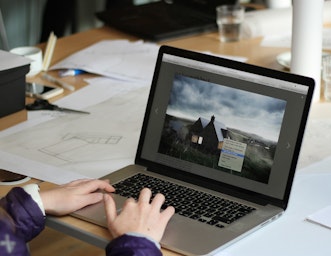
Virtual Open Day: MArch Sustainable Architecture Part 2
22nd April 2024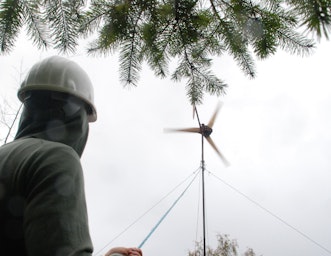
Build a Small Wind Turbine (Sold out)
27th April 2024Searching Availability...

